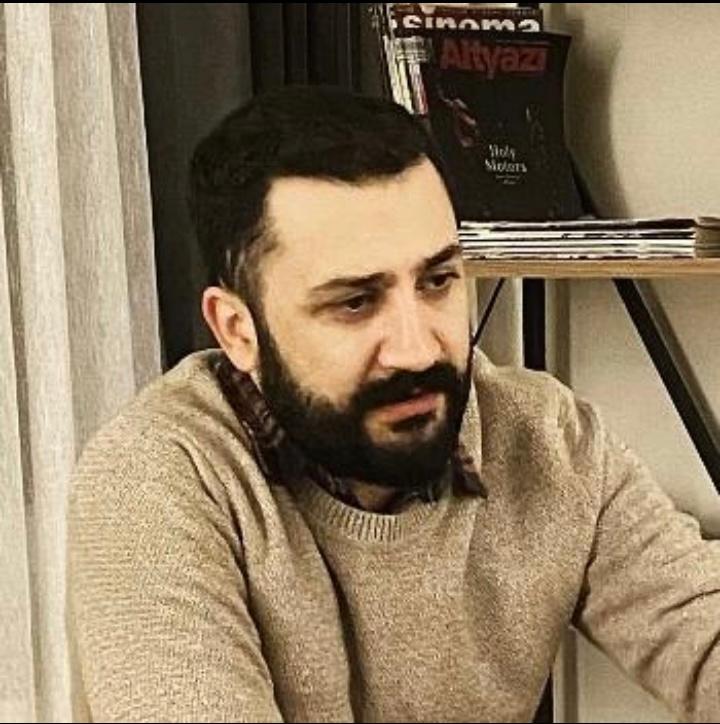PANDEMIC IN TURKEY
Musicians sell their instruments, return to their hometowns

* Photo: Pixabay
Click to read the article in Turkish
The coronavirus outbreak, which brought life to a standstill, has taken many sectors down so far. At the top of these sectors is the entertainment business and the music world, which is its sub-branch.
The musicians, whose voices are not heard despite all their calls, have been trying to hold on to life for more than a year with very limited support. According to the Music and Performing Artists' Union's (Müzik-Sen) claim, the number of musicians who have ended their lives since the outbreak of the pandemic has exceeded a hundred. But these data are not confirmed.
Musicians organized demonstrations in almost every city, especially in İstanbul. Despite all this, for over a year, no permanent solution has been found. Musicians İklim Tamkan, Gökçe Selim, Apolas Lermi, Ümit Taşkıran and Özgür İgit who have been working in five different music branches for years, have spoken to bianet.
Not only a physical but a spiritual wound
According to pianist İklim Tamkan, artists are at the top of those affected by the coronavirus. Tamkan, who has been playing the piano since the age of 11, says, "The affected musicians and artists have spent almost all their income sources during this process. The closed theater halls and the concerts that could not be held affected thousands of people."
However, according to Tamkan,  the crisis has not only an economic but also a spiritual aspect: "For us artists, not being able to meet with their audience or listeners means great moral devastation. The stage is a passion that adds meaning to the artist's life. The void created by the artist's detachment from the stage will cause very important wounds on our souls."
the crisis has not only an economic but also a spiritual aspect: "For us artists, not being able to meet with their audience or listeners means great moral devastation. The stage is a passion that adds meaning to the artist's life. The void created by the artist's detachment from the stage will cause very important wounds on our souls."
İklim Tamkan is a pianist who has performed in the most important halls of the world. Tamkan is an artist who has won the third prize in the piano branch at the International Val Tidone Young Talent Competition, one of the most prestigious competitions in the world, the international Kiwanis Prize in the field of the harpsichord, as well as the Martha Debelli Award and incentive scholarship given by the state of Austria.
However, defining the last year as "very destructive since the first day in regards to the anxiety created by the virus" despite her career extending to her childhood, Tamkan also has a criticism. Tamkan says that they had a lot of free time in this process, but that it was not possible to use this time efficiently, in other words, she could not produce enough:
"The virus has seriously undermined my creativity and motivation and continues to undermine it. Of course, we are not only inspired by the beauties of life, but this desperation that the world has fallen into, the state of struggle with the complete unknown, the losses experienced during this time, and the constant state of anxiety have made me crawl into my shell. I cannot say that I was able to produce a lot in this process."
But did the pandemic provide an advantage in terms of digitalization? Tamkan says that she does not see the digital world as a medium where she can express herself, apart from her online lessons:
"Spiritually, the 'digital' world does not quite agree with the spirit of classical music, harpsichord or piano in my heart. I have been spending this process with my students (mandatorily online) in order to continue their education by transferring my experiences. I can gradually get my hands on completing some unfinished production processes and editing my old records."
Kurdish musicians far behind the current situation
According to Gökçe Selim, the vocalist of the Kurdish rock music group Sîya Şevê, which gave concerts in many cities including İstanbul, the problems of musicians or musicianship in Turkey did not begin with the pandemic:
"Musicianship is not seen as a profession in Turkey and I can describe it as a lack of social rights. On the other hand, the so-called professional organizations that exist on this subject are already in the status of an association, only institutions that benefit themselves."
 Gökçe Selim is a musician living in İstanbul and has no additional income. Stating that he has only been making money from the music industry for 20 years, Selim says that the precariousness of the current order has been felt for many years, but has become visible with the coronavirus:
Gökçe Selim is a musician living in İstanbul and has no additional income. Stating that he has only been making money from the music industry for 20 years, Selim says that the precariousness of the current order has been felt for many years, but has become visible with the coronavirus:
"With the pandemic, life has become unlivable for musicians. Friends who have other jobs, like me, may be able to go through this process in one way or another. But my friends with whom I work and many of my friends who are musicians around me are not really well off. Many of them moved to their parents' homes with their spouse and children, or they had to move into a shared house with other musicians because they could not pay their rent."
Selim also explains that since they produce Kurdish music with his group, they already have a limited number of concerts, labeled under the status of dissident and are twice the victims of the pandemic:
"In addition to all these, while this is the general situation, the situation of Kurdish musicians, those who make Kurdish music or opposition musicians is behind the current situation.
"The municipal festivals and concerts that we attend once a month were not held either because of the political atmosphere or because of the trustees or many events were canceled, so it was not possible for us to sustain ourselves with only music before the pandemic."
Since the pandemic is not going to end tomorrow, what should be done? Selim's proposal in the short term is to create a collective movement:
"I think, in all provinces, like the events of 'İstanbul is a Stage' held in İstanbul, projects should be created and these activities should be sustained until the pandemic is over. Otherwise, the situation of many of our friends who make music without any social security is really at the end-point. Unfortunately, the suicides that have taken place have revealed this clearly."
He had to put his career on hold
Apolas Lermi, who carries the history and culture of the Black Sea to his music, explains that he had to suspend his career with the pandemic:
"In this process, we have become unable to move, as studios and similar places where we can produce music are unventilated and risky areas. In this process, like all of our musician friends, I am trying to cope with various difficulties. We had to suspend our music studies for this reason."
Lermi, 35, has been making money from music for 15 years. According to Lermi, musicians have not been experiencing financial difficulties only during the pandemic process, but they always experience them:
"Although the difficulties experienced by us musicians have started to come to the agenda with the pandemic process, we have been experiencing similar difficulties in the past. Musicians in this country have always struggled to survive by dealing with various difficulties. The pandemic has actually made this situation a little more visible."
 Lermi says that they also have been tackling the racism virus before the coronavirus: "The discriminating language of politics in this country has always posed various difficulties to musicians. Of course, the pandemic is a different one, but the language of politics that constantly separates and marginalizes also isolates us. Musicians who produce various kinds of music suitable for the pluralistic texture of this country and musicians who take part in different projects cannot be accepted. I was the victim of such an atmosphere for a while. Within this context, certain circles and certain names are always prioritized. We will continue to perform our music, despite everything. We will continue to sing our songs against the virus of misunderstanding and racism."
Lermi says that they also have been tackling the racism virus before the coronavirus: "The discriminating language of politics in this country has always posed various difficulties to musicians. Of course, the pandemic is a different one, but the language of politics that constantly separates and marginalizes also isolates us. Musicians who produce various kinds of music suitable for the pluralistic texture of this country and musicians who take part in different projects cannot be accepted. I was the victim of such an atmosphere for a while. Within this context, certain circles and certain names are always prioritized. We will continue to perform our music, despite everything. We will continue to sing our songs against the virus of misunderstanding and racism."
Apolas Lermi considers himself "lucky" as he is single during this period because the situation of those with a family is even worse. While explaining that the musicians with families tend to find additional jobs during this period, he explains his own experience with the following words:
"During the pandemic, I did not get into another sector or do any other work. During this period, I continue my music studies. Even if it is hard, I am trying to produce something slowly. Apart from that, I take care of my health, I try to overcome this process without any damage by doing sports."
'The extinction of music and musicians'
Ümit Taşkıran, who gives life to the streets of İstanbul with his Laz language songs and kemancha (a stringed bowed musical instrument), states that he has been in contact with his musician friends from the beginning of the coronavirus process and has common concerns:
"We both moved away from music and started to focus on different professions in order to make a living. Many of our friends closed their houses because they could not pay their rent, sold their instruments, and returned to their hometowns. We had friends who came to the brink of suicide, and although I don't know them closely, many musicians chose to commit suicide due to economic difficulties. There is not a single space left where we can perform our music. Music production has almost stopped."
Stating that musicians were not supported in any way during the coronavirus process, Taşkıran says, "While aid packages were announced to each sector, musicians were excluded from this aid. However, the musicians shared the pain and joy of this country. We were at every wedding and protest. Today we are completely ignored."
Taşkıran says that the  backstage teams also suffered during the process: "But we were able to play our music somewhere around the corner, those corners do not exist anymore. There are also many people in this industry besides musicians; backstage staff, road crew, tonmeister, even the venue owners, all of those who work there were erased in an instant and I don't know how they would get back up."
backstage teams also suffered during the process: "But we were able to play our music somewhere around the corner, those corners do not exist anymore. There are also many people in this industry besides musicians; backstage staff, road crew, tonmeister, even the venue owners, all of those who work there were erased in an instant and I don't know how they would get back up."
Ümit Taşkıran, 27, has been making a living with music for 15 years. However, this period directed him to other jobs as well: "I was unemployed for a long time after the pandemic started, but now I work in a music store. I maintain and repair musical instruments."
Describing the pandemic as "the extinction of music and musicians", Taşkıran says, "If this goes on, neither art will remain nor an artist. While musicians who are able to switch to other sectors in some way may continue their lives away from music, those who cannot make a living will continue to sell their instruments due to economic difficulties" and makes a call by stating, "Local governments, municipalities, cultural centers can open spaces for musicians who make various kinds of music. Online meetings can be organized, solidarity budgets can be created."
'No expectation from the government anymore'
Guitarist and composer Özgür İgit, who has been playing guitar in various bars and entertainment venues in Turkey for nearly twenty years, evaluates the last year from his perspective as follows:
"Last year, when the first bans of the pandemic began, my workplaces were closed and I was unemployed for a while. Then, for a short time, the places started to reopen, and we started our business again. But this process lasted for a very short time. Then, an uncertain process started. This uncertainty continues, and I have been unemployed during this period. This pandemic especially poses great psychological difficulties. There were times when I almost got to the point of quitting music. It is very difficult to be at home all the time and wait for this uncertainty to end. In order to hold on to life, I have been trying to overcome this process by composing and writing lyrics."
.jpg) İgit, 40, has been making a living with music since he was fifteen. However, he has been describing himself as "unemployed" for a year now, and his savings have come to an end: "In this process, a little support came from the Ministry of Culture. Other than that, I did not receive support from any other place. I had a small amount of savings, and I am trying to sustain myself in this process."
İgit, 40, has been making a living with music since he was fifteen. However, he has been describing himself as "unemployed" for a year now, and his savings have come to an end: "In this process, a little support came from the Ministry of Culture. Other than that, I did not receive support from any other place. I had a small amount of savings, and I am trying to sustain myself in this process."
Igit explains the situation that is getting worse every day with his observations of his colleagues: "We had friends who could not find food for their children, pay their rents. We tried to support our musician friends who had serious difficulties with the solidarity of a small group of friends. Unfortunately, this process continues to cause such difficulties."
İgit, who also attended the meeting held by the main opposition Republican People's Party (CHP) Chair Kemal Kılıçdaroğlu with musicians unemployed during the coronavirus process, also shares his observations:
"I joined the meeting too. In that meeting, artists and musicians tried to express the difficulties they have been facing during this process. I sensed the following situation in most of the friends who took the floor. Nobody has any expectations from the government. They want the existing problems to be overcome through municipalities and local governments.
"Everyone who took the floor saw the İstanbul Metropolitan Municipality (İBB) as a great alternative government. They had neither expectations nor demands from the current government."
According to İgit, institutions representing musicians in Turkey remained unresolved during the coronavirus process:
"Institutions representing musicians could not produce any solutions during the pandemic process. These institutions operate with a more recognized, narrow circle. We musicians have no future security.
"Existing institutions trying to represent musicians were very inadequate during the pandemic. We need more organized institutions that will find permanent solutions to the problems of musicians."
|
The Ministry of Culture and Tourism prepared a support program for musicians. At the beginning of this year, 24,522 musicians received 1,000 TL per month for three months. However, musicians working unregistered, that is, without insurance, were not included in this program. On the other hand, İBB announced that it is going to enable thousands of musicians to meet with Istanbulites with the "İstanbul is a Stage" project. Art events will be held outdoors, free of charge, and in accordance with pandemic conditions. Applications for the program ended on April 9. |
(DD/SO/DCE/SD)








